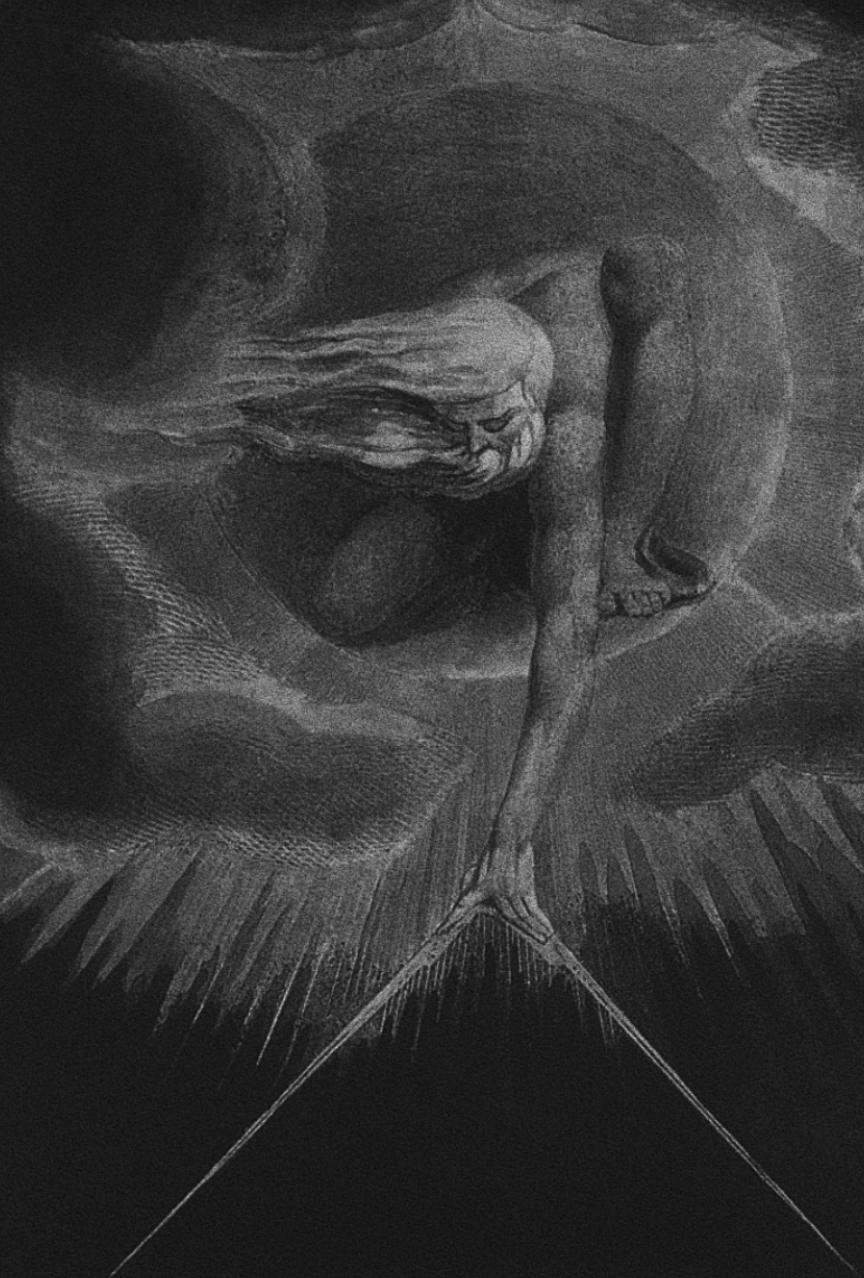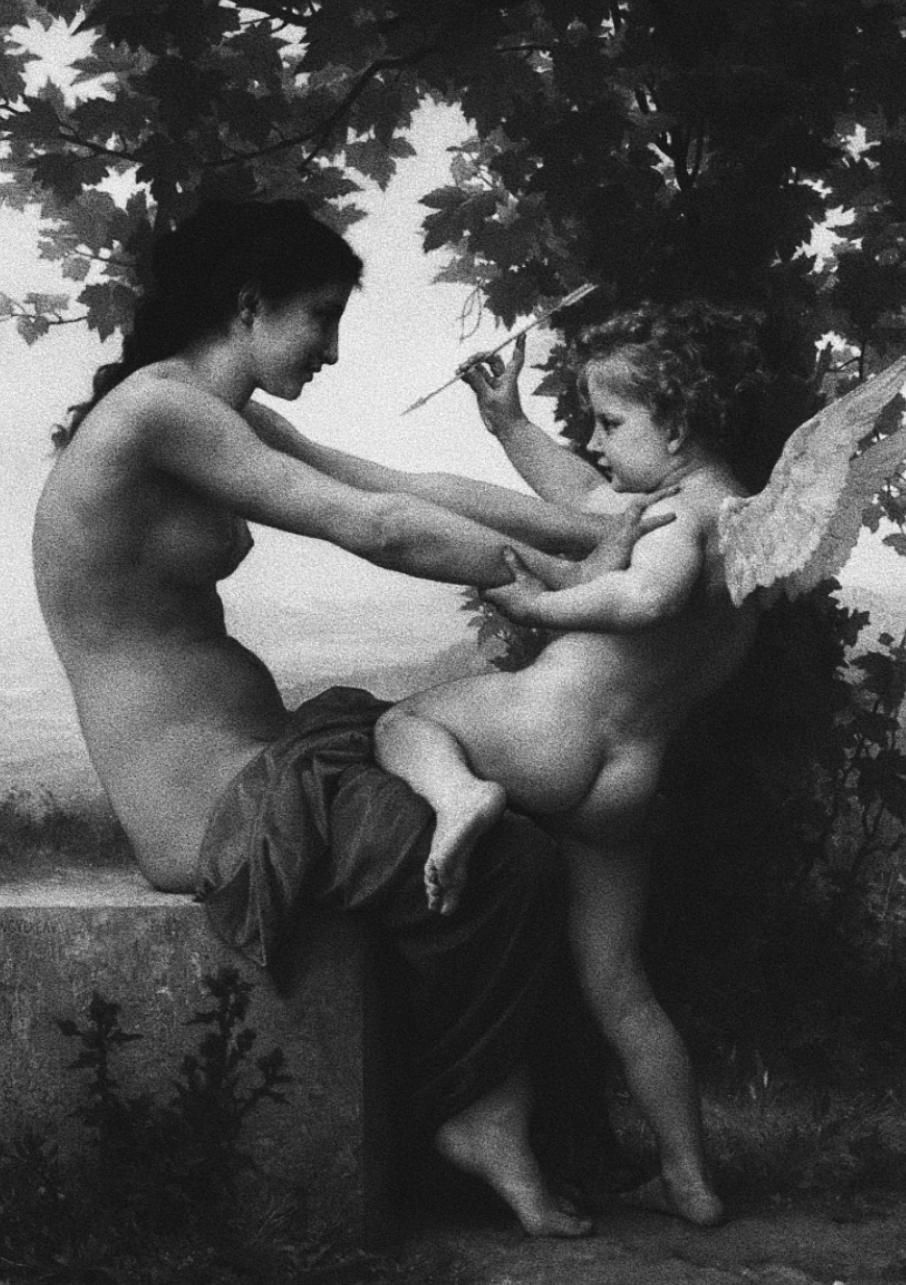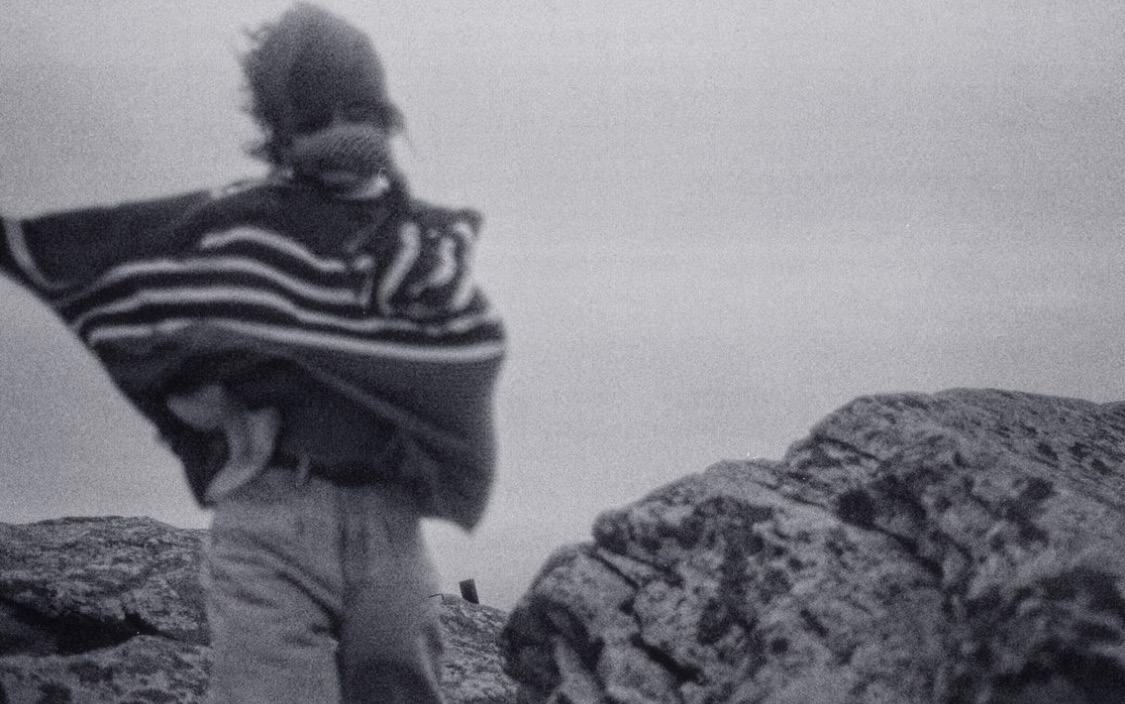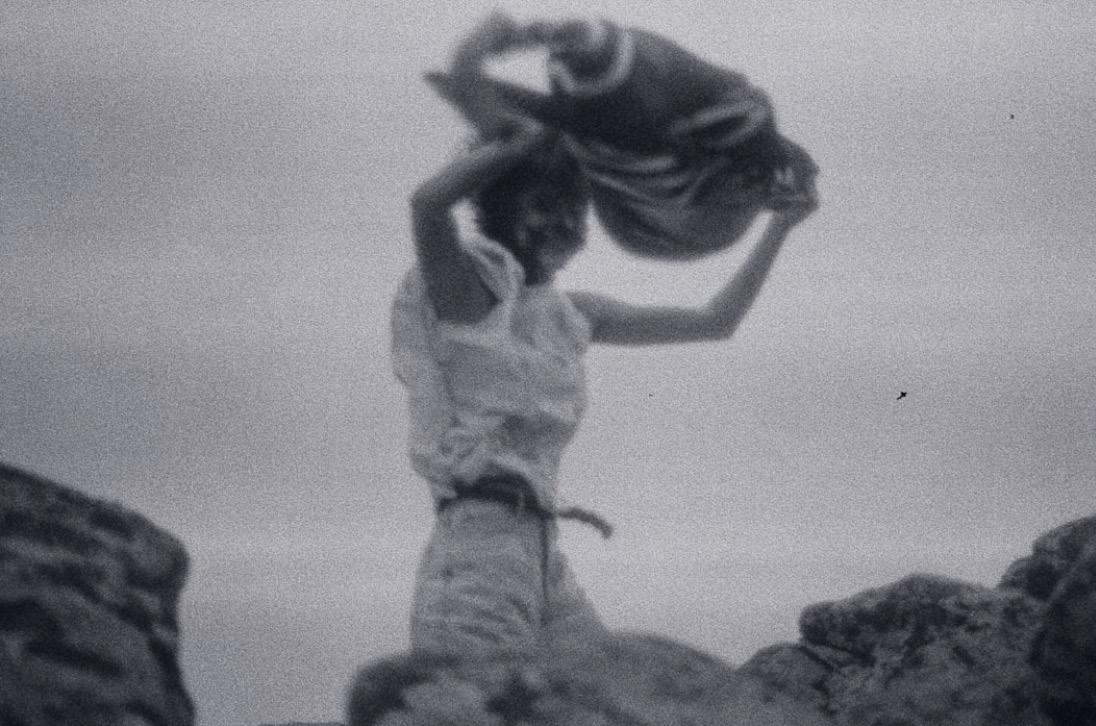The waves I’ve held


The waves I’ve held

Cultivating a relationship with passing time.
The ticking of the clock bounced between the walls of my childhood bedroom. That is when fear started to take refuge in my pajama pockets. Half asleep, I’d feel each sound of the clock in my chest. A wordless promise that the echo that died too early was an echo that returned. And the ticking did return, again and again. This sound sent me to sleep and was the rhythm of my dreams. Images of what could be in a head too young to have seen for itself, but just young enough for it to create the world in fantasy. In those dreams, I lived my frst desires and fearsthe extent of my being. This time, very awake, I want to analyze both through what created them.
Time as my eternal companion, my greatest pain and reliever of it.
Growing more aware of time’s ability to pass following diferent rhythms, I hope to prove to the child afraid of the clock that the silences between its ticking can hold in them more meaning than the sound itself.
One has the ability to live in a world where the interval between one second and the next extends into infnity yet another can experience a world where all seconds fall into one single sound. f
Time as it is portrayed on a drying fruit or the wrinkles of a palm, exists in the material world but is experienced sentimentally.
To make my thoughts on passing time clear, I will be using a prime example of passing time in literature, the novel by Marcel Proust in, In Search of Lost Time. Looking into the relationship of man in the constant companionship with time, Proust manages to explore time’s honest nature and multiple dimensions. As a refection and an object, it is broken down and understood through the continuous experience of self and identity. Parallelly to the novel, I’ll be referencing the book: A Brief History of Time by Stephen Hawking in hopes of rationalizing the idea that time is not absolute in its fow hence can be experienced diversely.
Time and Distance are two dimensions that make up the real world. Constant travelers of both, our bodies experience them whilst balancing between physicality and immateriality. What can be felt between the fngers and what we long to fll our empty palms.
Distance or diferent locations experienced by the body could be anchors as as well as stimulants for emotion.
Looking at the journey towards a location, we could perceive it as an externalized experience of a sensation. Not because it stimulates new feelings but because it refects an already existing state of the self.
A long steep hill could mirror the agony found in empty desire, swimming in cold waters could mirror feelings of numbness.
Crossing a distance, feeling the journey as a tool for persevering or even an expression of a state, the world could begin to feel like it was built to house us with all we carry. Experiencing the world as a manifestation of our internal cosmos its material dimension could become synonymous with the metaphysical.
Our legs strong enough to run at the speed of our thoughts and our hands broad enough to hold all we need to carry with us in our journeys, our bodies could begin to work as universes that are essentially the world that they experience.
The connection between the physical and the metaphysical, as it is explored in distance, urges us to perceive time as something that already exists within us. The desire to experience life and its unlimited possibilities give birth to our perception of time, revolving around change.
Acting like a silent master, time is an entity that runs parallel to us all, the ticking of our clock is the rhythm of our song, the song for our greatest dance.
Accepting time’s capacity to alter (pragmatically) around forces such as gravity and velocity, we are encouraged to find our own songs, our own clocks of experiencing passing time.
Studying ways of understanding passing time in its complexity with aim of finding our own rhythm, it is necessary to look into literature as a way of grasping the meaning of time in any narrative.
Looking into the meaning of rhythm through narrative, literature has the ability to create universes that function and run following their own.
Looking into Proust’s primary clock or indicator of time in the novel we are introduced to memory and location as the windows through which one understands passing time.
Diferent scenes (locations) in his narrative explore diferent facades of reality and passing time. In other words, using the world as a stimulant for feeling, Proust creates an emotional landscape through which he experiences time and its fow.
In the frst chapter of the novel, Proust describes the moments before sleep as a child. The emptiness of the night breeds nostalgia in his descriptions and time in his writing seems to unfold slowly and comfortably with no recall of a present or a future. Explaining the experience of passing time on the threshold of sleep and wakefulness, he states:
“A sleeping man holds in a circle around him the chain of the hours, the sequence of the years, the order of the heavenly host”
Proust introduces the reader to three diferent ways of passing time: circular, linear, and order in recollection. Balancing between the worlds of wakefulness and sleep, the writer describes the repetition of the numbers, the feeting of the years and the order of knowledge that travels irrepressibly in memory, through time.
Proust creates an emotional underlying facet of time; an opening into a world that is sentimental through its real dimension. Understanding the portrayal of time in this narration, it seems that time itself is an entity that orbits around the self and has the capacity to unfold in many directions. Certainly, I could not argue that we could travel back in time physically, but understanding the fragility and relativity of time, a nostalgic flter before memory could give greater freedom in captivating reality as a dynamic entity. Not having to grieve each passing moment through mastering the art of remembering, we can slowly begin to fnd our own rhythm.
Taking this idea to the physical world, Stephen Hawking in his great scientifc book A Brief History of Time describes
a similar elasticity of passing time. One clear example stated in the book is the Twin paradigm.
“Consider a pair of twins. Suppose that one twin goes to live on the top of a mountain while the other stays at sea level. The frst twin would age faster than the second. Thus, if they met again, one would be older than the other.”
Explaining that the gravitational forces afect the passing of time, Hawking revolutionizes the idea that time is absolute. He then expands his thoughts on this and states that there is no unique absolute time but rather each one of us has ourr own personal measure that relies on where we are and how fast we are moving.
As an identical twin myself, it is very clear to me that, physically and metaphysically, I share my ticking clock. Next to me, through the winters, summers, and all inbetweens, my sister has been the canvas of time’s traces. A face that I study and that studies me.
The invisible companion, making a slight appearance on her face, I have learned who time is through her. Arriving on this earth at the same position in time, twins might think they dance to the same rhythm. In the chaotic dance between meaning and vacancy, we all realize that our relationship with time is something that can not be shared. Alone in our nostalgia and desires, time is the fre and the fuel that burns where the heart lives.
Twin relationships orbit around the matter of time because fundamentally that is what bonds them. Understanding the diference in the experience of passing time is an unavoidable rebellion against this innate time bond twins could supposedly occupy.
Stuck in the illusion that one could share the rhythm of time innately, we are missing time’s fexible and personal dimension. On the other hand, growing aware of time’s capacity to adapt, we are liberated. Our narrative is our asset and is for us to explore it, just like the world we feel between our fngertips.
To understand the passing of time further we have to study its main traveler, the self. Growing aware that a very crucial aspect of feeling passing time is through memory, we are introduced to its most important facet. We painfully remember and soothingly forget, or the opposite. Memory and following that nostalgia, are massive parts of time itself. A bit like life to death or death to life, memory is what makes time-time. Without it we would be existing at a constant present, the weight of life’s happenings fying around carrying nothing but momentary sensation. Meaning and memory in a world that spins towards forgetting, is tightly connected because one creates the other.
Memories in Proust’s novel play a huge role in the unfolding of his central idea. The self, in this case the main character Swann, lives through his past memories.
“I would rest my cheeks tenderly against the lovely cheeks of the pillow, which, full and fresh, are like the cheeks of our childhood.”
Adding onto the theme of the real world soliciting the creation of the emotional landscape, remembrance through memory allows for meaning to be formed. The ability to see the self as a dynamic unit traveling from past to future prevents the constant grief which comes with living and forgetting. Going back to the sense of relative passing time and grief, we can now see the self as an accumulation of passing time, rather than a momentary light.
On the contrary, perceiving time in an absolute way (disregarding the perspective mentioned earlier) we welcome grief. It is as though experiencing time in a linear way causes us to highlight the expectation that the past stands alone ready to be abandoned and the future ahead of us, ambitiously empty, waiting to be created.
Other than also supporting a greedy nature of constantly proving who you are, this persistent traveling away from the past also causes the self to grieve perpetually what it used to be, rather than existing in it cumulatively and peacefully.
Time and
Desire Desire
Desire Desire
Desire Desire
Desire Desire
Desire Desire
Desire Desire
Desire Desire
Desire Desire
Desire Desire
Desire Desire
Desire Desire
Desire Desire
Desire Desire
Desire Desire
Desire Desire
Desire Desire
Desire Desire
Desire Desire
Desire Desire
Desire Desire
Desire Desire
Desire Desire
Desire Desire
Desire Desire
Desire Desire
Desire and time live closely together. Disrupting the emotional fow, desire is fed by time and time usually gives birth to desire. Proust in his novel explores this exact theme through jealousy. One quote that stood out to me was:
“Born of a new suspicion, the ft of jealousy from which I was suffering was new too, or rather it was only the prolongation, the extension of suspicion”
The suspicion that turns into torturing jealousy suggests the creation of desire through time. One melting into the other, both feelings extend the passage of time. Longing is one of the main feelings which seems to slow down time and living in desire means living for a future potential occurrence. The tempo change fueling the impulse makes the movement toward the wanted future slow. Desire in time is interesting also because it works as the main stimulant for movement. Rather than resting in memory, wanting something greatly stimulates the urge for existing in a context diferent from the present, hence intensifying the importance of being.
Desire in Steven Hawking’s book is surprisingly similar when explored in the chapter “Space and Time”.
The writer mentions Aristotle’s theory and quotes: “that the natural state of a body was to be at rest and that it moved only if driven by a force or impulse”. Through this quote, we are presented with the function of desire. Impulse that took the body out of rest and into movement.
Made into a powerful stimulant, jealousy, desire and longing could be this ‘impulse’ which allows us to build wanting and just after that reality.
Desire is the emotional dimension of the future, it descends us out of living in memory, and places us in the position of action. No matter what that action could be, it is enough for us to reach out bravely and with intention, towards a world that is ready to be felt and altered by the hands of those who desire to feel.
The hand that showed me everything
 William Blake, The Ancient of Days, 1794
William Blake, The Ancient of Days, 1794
Filling this blank page, my hand is giving voice to my mind that so quietly desires for its words to stand as objects.
Words as the children of a hungry mind and an irritated fnger.
Hands as an extension of self, a portrait of time and a tool.
They cram in our pockets or rise up to the sun, these are the hands that showed me everything.
 Jean-Baptiste Greuze, The Dead
Bird, 1800
Jean-Baptiste Greuze, The Dead
Bird, 1800
The hand extends and as it meets the world it reshapes it.
Creating and destroying the hand is the leader of change and the absorbent of the past.
Yet here’s a spot. Out, damned spot! out, I say!--One: two: why, then, ‘tis time to do’t.--Hell is murky!--Fie, my lord, fe! a soldier, and afeard? What need we fear who knows it, when none can call our power to account?--Yet who would have thought the old man to have had so much blood in him. The thane of Fife had a wife: where is she now?--
What, will these hands ne’er be clean?--No more o’
that, my lord, no more o’ that: you mar all with this starting.
Here’s the smell of the blood still: all the perfumes of Arabia will not sweeten this little hand. Oh, oh, oh!
Wash your hands, put on your nightgown; look not so
pale.--I tell you yet again, Banquo’s buried; he cannot come out on’s grave.
To bed, to bed! there’s knocking at the gate: come, come, come, come, give me your hand. What’s done cannot be undone

Not only afected by its ambition to reach for what the mind desires, the hand’s gesture and intention is not its only masters. The hand’s appearance relies on its past interaction with the real world. The hand is tamed and crafted by time, in its detail, it becomes a canvas of revealing secrets. Examining a pair of hands, one can see the duration of life as well as how life has been spent. Studying hands as if they were the face of a stranger, one is exposed to the manifestation of meaning, a static, physical encapsulation of life’s happenings.
A fsherman will have calluses on his fngers because he uses them to untangle the thick fshing nets every afternoon. Using his hands as tools, serving the prospect of the untangled net the fsher man sacrifces the smoothness of his hands for the creation of meaning. Giving up the smoothness of his fngertips, the fsherman has found meaning for the tools which he carries. Observing his hands one can visualise his hunched back and hear his playful humming as
the image of him untangling emerges from the imagination. A sailor that hasn’t given up the smoothness of his fngertips could not provoke such emotion.
The narrative of a sailor could never survive without standing next to the loss of neutrality, the loss of the smooth hand. The statement created through its roughness gives the needed space (or even infuence) to the observer for creating a potential reality.
It seems that fnding purpose means creating it.
Coming into friction with the real world, we have the power to give birth to meaning and fnd use for our initially purposeless, soft hands.
Gaining control over our touch, we cultivate their ability. In doing so, with their ability to untangle comes the responsibility to do so.
No longer free, yet surely not purposeless, our hands are a refelction of meaning. Adapting to the envrionment we place them in, they become our portraits in time.
A Young Girl Defending Herself Against Eros, William-Adolphe
Bouguereau, 1880

words on a napkin about the loveliest hands my hands have held
Your sleeping hand folds in itself, fngers in palm.
Rough knuckles against my backthese are the hands you sat on in class, you pointed and hid behind.
The hands that prayed and sinned, caressed and hurt.
I ask you one thing now that my hands are empty of yours.
In every new corner of this world you discover, taint it with your gesture.
Run your fngertips through the sand, leave a trace for me.
A trace through which I’ll fnd you.
And I promise I will fnd your hand through its traces, and when I do, the world will become a playground for our tangled fngers.


In the moment right before the fight I look at my hands. Empty and cold.
I know I can’t win.
But I still raise my fists to the beast that looks at me.
Beast, I still want the fight even with two left hands.
It is the blow of the beast that soothes the need, it is the pain that feeds the soul that already aches
I press my thumbs against the heart of the nectarine and break it in two
From its softness I know it will be sweet and before I taste it I already have tasted it I press my thumbs against the heart of the nectarine and break it in two
From its softness I know it will be sweet and before I taste it I already have tasted it I press my thumbs against the heart of the nectarine and break it in two
From its softness I know it will be sweet and before I taste it I already have tasted it I press my thumbs against the heart of the nectarine and break it in two
From its softness I know it will be sweet and before I taste it I already have tasted it I press my thumbs against the heart of the nectarine and break it in two
From its softness I know it will be sweet and before I taste it I already have tasted it I press my thumbs against the heart of the nectarine and break it in two
From its softness I know it will be sweet and before I taste it I already have tasted it I press my thumbs against the heart of the nectarine and break it in two
I am laying on my summer bed counting my summer fngers.
When I dream of summer all that comes to mind are these white walls and these books that I try to wipe clean of sand that have found home between the pages.
The immortal summer that lived in me all winter has now left me and I feel its absence.
Summer now is a landscape of a body I desired, and which has left me too.
Midsummer grieving of the only infnite thing that lived in me.
Now I lay in these empty sheets, empty form the depth of infnity that now do not exist within me anymore.
Running out of words.
You leave pieces of yourself in my mind, used words- too worn out for me to use again. Eyes too familiar for me to investigate.
Continuously you foat in me burning everything leaving behind ashes that fy away as the sweet wind blows.
The apartment block in front of my window looks at me as I write. It is warm and my room is flled with paper tainted with words I once believed have now forgotten. One yellow light comes on through one square, then another. Sometimes, as I observe the random movement of the light in the apartment block facing me, I dream of a world where I can see myself as clearly as I see you.
I feel like I know you so well that even your name feels comfortable on my tongue. If all names got lost I would still remember yours for its rhythm. A beautiful song.
Sometimes, I leave my window open, let my hair dance as the wind brushes against my ears and then I hum the rhythm of your name until the wind falls silent too.
Silence, I have grown to love silence. Not only because it promises sound before its arrival, but because it reminds me that nothingness exists. A brutal but honest reminder that you and I live on the threshold of meaning and vacancy.
I hoped for melting ice cream on my lips.
I had tasted ice cream, but now it was August and I had never tasted ice cream in August.
I ignored what I needed but the beehive never slept in me and months later, in late spring, I still craved the sweet cold softness.
Tossing and turning in the cotton sheets that housed my pulasting desire
I am forever confronted with two options, forgetting and killing or recalling and fueling.
Maybe the options are not options for someone that can not kill.
Discipline is important to people like me who want too much out of any given fruit.
Shall I become a slave to myself perception or subject to my desires. Either way I am not free.
Swimming in my own(ness)
Sun burn my desire through and through.
Sky water my thirst.
I dissolve with every memory of skin
I dissolve like a dry crystal of salt in the ocean-
I am now many of one, I am now here and there.
Scattered melted, separated.
I confuse myself for the sea.
why can’t I just be satisfed with one drink of water, why do I chug it so violently, selfshly.
Why can’t I just stop this overwhelming greediness and be flled with a one second of fulflled wanting.
maybe, the emptiness brings the thirstmy lonely stomach calls for anything to fll it maybe, all this desire is a reaction to the empty nothingness that awaites me on the other side of wanting
The wind blew the hair of my face, I stared at the neverending blue ocean that ran into the sky. How I wish to run into infnity with such ease, with such beauty. I want to become the melting point of the ocean and the sky, the blue madness that drowns everything and leaves behind perpetual waves. Moments of remembrance of the beauty found in the collision of two powers.
Then, the waves they meet you and they meet me.
The power hidden between the world and skin.
Remember this blue madness, the sky and the sea, we are them.
Our memories dance in the rhythm of the waves, crashing agaist the shore taming it.
This journey of becoming can be the sweetest journey of them all.
I hope you do not mind the waves-
I do not mind the drowning waves I think I swim better than I drown.